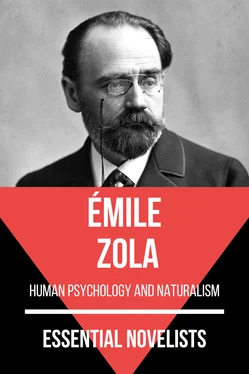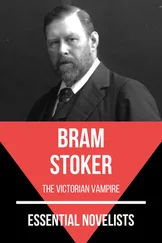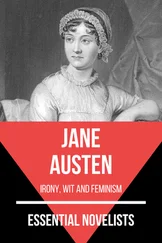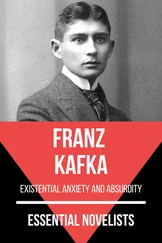"Anyhow, when one has got enough to eat!" murmured Étienne again.
"That is what I say. As long as one has bread to eat one can live."
Bonnemort was silent; and his eyes turned towards the settlement, where lights were appearing one by one. Four o'clock struck in the Montsou tower and the cold became keener.
"And is your company rich?" asked Étienne.
The old man shrugged his shoulders, and then let them fall as if overwhelmed beneath an avalanche of gold.
"Ah, yes! Ah, yes! Not perhaps so rich as its neighbour, the Anzin Company. But millions and millions all the same. They can't count it. Nineteen pits, thirteen at work, the Voreux, the Victoire, Crévecœur, Mirou, St. Thomas, Madeleine, Feutry-Cantel, and still more, and six for pumping or ventilation, like Réquillart. Ten thousand workers, concessions reaching over sixty-seven communes, an output of five thousand tons a day, a railway joining all the pits, and workshops, and factories! Ah, yes! ah, yes! there's money there!"
The rolling of trams on the stages made the big yellow horse prick his ears. The cage was evidently repaired below, and the landers had got to work again. While he was harnessing his beast to re-descend, the carman added gently, addressing himself to the horse:
"Won't do to chatter, lazy good-for-nothing! If Monsieur Hennebeau knew how you waste your time!"
Étienne looked thoughtfully into the night. He asked:
"Then Monsieur Hennebeau owns the mine?"
"No," explained the old man, "Monsieur Hennebeau is only the general manager; he is paid just the same as us."
With a gesture the young man pointed into the darkness.
"Who does it all belong to, then?"
But Bonnemort was for a moment so suffocated by a new and violent spasm that he could not get his breath. Then, when he had expectorated and wiped the black froth from his lips, he replied in the rising wind:
"Eh? all that belong to? Nobody knows. To people."
And with his hand he pointed in the darkness to a vague spot, an unknown and remote place, inhabited by those people for whom the Maheus had been hammering at the seam for more than a century. His voice assumed a tone of religious awe; it was as if he were speaking of an inaccessible tabernacle containing a sated and crouching god to whom they had given all their flesh and whom they had never seen.
"At all events, if one can get enough bread to eat," repeated Étienne, for the third time, without any apparent transition.
"Indeed, yes; if we could always get bread, it would be too good."
The horse had started; the carman, in his turn, disappeared, with the trailing step of an invalid. Near the tipping-cradle the workman had not stirred, gathered up in a ball, burying his chin between his knees, with his great dim eyes fixed on emptiness.
When he had picked up his bundle, Étienne still remained at the same spot. He felt the gusts freezing his back, while his chest was burning before the large fire. Perhaps, all the same, it would be as well to inquire at the pit, the old man might not know. Then he resigned himself; he would accept any work. Where should he go, and what was to become of him in this country famished for lack of work? Must he leave his carcass behind a wall, like a strayed dog? But one doubt troubled him, a fear of the Voreux in the middle of this flat plain, drowned in so thick a night. At every gust the wind seemed to rise as if it blew from an ever-broadening horizon. No dawn whitened the dead sky. The blast furnaces alone flamed, and the coke ovens, making the darkness redder without illuminating the unknown. And the Voreux, at the bottom of its hole, with its posture as of an evil beast, continued to crunch, breathing with a heavier and slower respiration, troubled by its painful digestion of human flesh.
––––––––
IN THE MIDDLE OF THE fields of wheat and beetroot, the Deux-Cent-Quarante settlement slept beneath the black night. One could vaguely distinguish four immense blocks of small houses, back to back, barracks or hospital blocks, geometric and parallel, separated by three large avenues which were divided into gardens of equal size. And over the desert plain one heard only the moan of squalls through the broken trellises of the enclosures.
In the Maheus' house, No. 16 in the second block, nothing was stirring. The single room that occupied the first floor was drowned in a thick darkness which seemed to overwhelm with its weight the sleep of the beings whom one felt to be there in a mass, with open mouths, overcome by weariness. In spite of the keen cold outside, there was a living heat in the heavy air, that hot stuffiness of even the best kept bedrooms, the smell of human cattle.
Four o'clock had struck from the clock in the room on the ground floor, but nothing yet stirred; one heard the piping of slender respirations, accompanied by two series of sonorous snores. And suddenly Catherine got up. In her weariness she had, as usual, counted the four strokes through the floor without the strength to arouse herself completely. Then, throwing her legs from under the bedclothes, she felt about, at last struck a match and lighted the candle. But she remained seated, her head so heavy that it fell back between her shoulders, seeking to return to the bolster.
Now the candle lighted up the room, a square room with two windows, and filled with three beds. There could be seen a cupboard, a table, and two old walnut chairs, whose smoky tone made hard, dark patches against the walls, which were painted a light yellow. And nothing else, only clothes hung to nails, a jug placed on the floor, and a red pan which served as a basin. In the bed on the left, Zacharie, the eldest, a youth of one-and-twenty, was asleep with his brother Jeanlin, who had completed his eleventh year; in the right-hand bed two urchins, Lénore and Henri, the first six years old, the second four, slept in each other's arms, while Catherine shared the third bed with her sister Alzire, so small for her nine years that Catherine would not have felt her near her if it were not for the little invalid's humpback, which pressed into her side. The glass door was open; one could perceive the lobby of a landing, a sort of recess in which the father and the mother occupied a fourth bed, against which they had been obliged to install the cradle of the latest comer, Estelle, aged scarcely three months.
However, Catherine made a desperate effort. She stretched herself, she fidgeted her two hands in the red hair which covered her forehead and neck. Slender for her fifteen years, all that showed of her limbs outside the narrow sheath of her chemise were her bluish feet, as it were tattooed with coal, and her slight arms, the milky whiteness of which contrasted with the sallow tint of her face, already spoilt by constant washing with black soap. A final yawn opened her rather large mouth with splendid teeth against the chlorotic pallor of her gums; while her grey eyes were crying in her fight with sleep, with a look of painful distress and weariness which seemed to spread over the whole of her naked body.
But a growl came from the landing, and Maheu's thick voice stammered;
"Devil take it! It's time. Is it you lighting up, Catherine?"
"Yes, father; it has just struck downstairs."
"Quick then, lazy. If you had danced less on Sunday you would have woke us earlier. A fine lazy life!"
And he went on grumbling, but sleep returned to him also. His reproaches became confused, and were extinguished in fresh snoring.
The young girl, in her chemise, with her naked feet on the floor, moved about in the room. As she passed by the bed of Henri and Lénore, she replaced the coverlet which had slipped down. They did not wake, lost in the strong sleep of childhood. Alzire, with open eyes, had turned to take the warm place of her big sister without speaking.
Читать дальше












